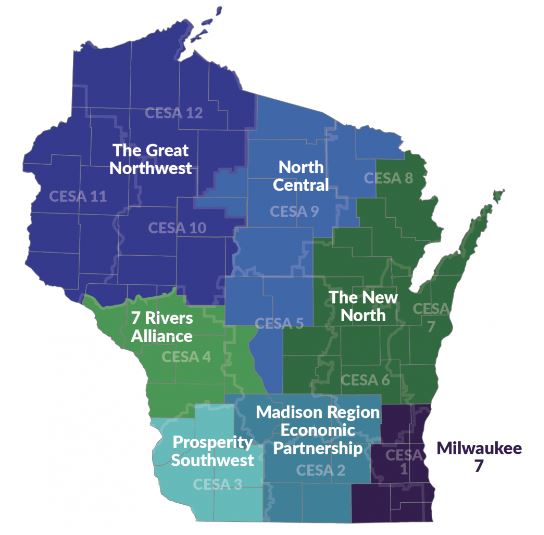In this article, the State Director for Regional Career Pathways, Beth Kaminski, provides the information she gets asked about most frequently.
1. The state endorses 11 Regional Career Pathways (RCPs):
- Advanced Manufacturing
- Agriculture, Food, and Natural Resources
- Architecture and Construction
- Business Administration
- Direct Patient Care
2. The RCP approach begins at the state level, is updated at the regional level, and is personalized at the district/school level.
Based on statewide labor market information and industry demand, Regional Career Pathways are created and updated by a state leadership team made up of industry leaders, employers, K-12 partners, and institutions of higher education aligned to each RCP. Once created or updated, they are rolled out to the regions. Based on regional labor market information and industry demand, the region brings together a regional collaborative group to determine if the pathway will be offered in the region. If so, the regional collaborative updates the state RCP template and then rolls it out to districts/schools for adoption. Districts/schools then determine if they meet the requirements to offer the RCP. If so, they personalize the RCP and roll it out to stakeholders. Find out which RCPs are approved for your region for 2023-2024.
3. You probably already have many of the RCP components in place and may not know it!
- RCPs start with offering a sequence of at least two CTE courses aligned to one of the career pathways in your region. If your district/school meets this requirement, then you need to offer at least two of the following elements aligned to the pathway in order to get approval for an RCP:
- Work-based learning (WBL) opportunity
- Career and technical student organization (CTSO) opportunity
- Industry-recognized credential (IRC) opportunity
- Dual enrollment or college credit opportunity
- Many local career pathways align to already established RCPs. A goal for the 2023-24 school year is for districts/schools to convert their local pathways to formally approved RCPs, when available, in order to utilize and leverage the work and support of the regional collaborative to grow the pathway offerings and opportunities for students.
4. Your RCP Regional Coordinator can help you with all the details of offering an RCP.
- Here is Wisconsin's regional map:

- Still not sure which region your high school is in? Refer to THIS spreadsheet for your assigned region.
- Here is the contact information for the RCP Regional Coordinators:
|
Region |
Regional Coordinator |
|
|
The Great Northwest |
Dani Lewandowski |
|
|
North Central |
Brooke Holbrook |
|
|
The New North |
Tania Kilpatrick |
|
|
7 Rivers Alliance |
Amanda Langrehr |
|
|
Prosperity Southwest |
Darla Burton |
|
|
MadREP |
Gene Dalhoff |
|
|
M7 |
Eric Hill |
5. Don’t reinvent the wheel!
RCPs serve as ready-made Academic and Career Plans (ACPs) for students. They also complement the robust work of all classroom teachers when it comes to curricular and instructional planning.
- Spring 2022 research on the perceptions of Wisconsin high school students (current students and recent graduates) on their career preparation in high school indicates they want to see and understand how their learning in all of their classes is relevant to their future goals.
- All teachers need to find ways to weave the work of RCPs into all classrooms (career-connected learning for all) so that students understand how content/knowledge/learning can be applied to various careers. Along the way, teachers need to assist students in developing career-readiness skills, regardless of their career pathway.
For more information, reach out to Beth Kaminski (beth.kaminski@pathwayswi.org), State Director for Regional Career Pathways, or to your RCP Regional Coordinator.
